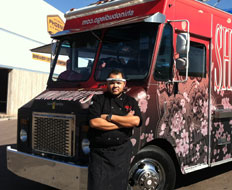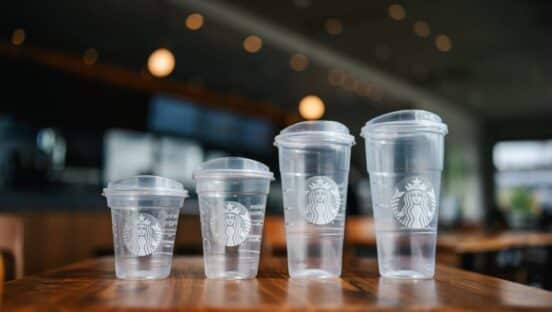With a passion for healthy, artisan food and local purchasing, Lori Baker has long toured various Phoenix-area farmers markets and enjoyed the culinary ingenuity sprouting from both food trucks and independent suppliers.
Eventually, an idea hit.
“I wanted to see if we could bring together these community ties with sustainable agriculture and barter,” says Baker, who heads the 33-year-old, Scottsdale, Arizona–based Barter Group.
The result is The Edible Exchange, a new barter concept designed exclusively for foodservice operations in the Phoenix area. More than a dozen quick serves, primarily food trucks, as well as local farmers, ranchers, and food artisans, belong to the group and have access to each others’ goods through it.
Launched in January, the new organization highlights one of the restaurant industry’s hottest trends with both consumers and operators alike: locally sourced food.
In its 2012 Restaurant Industry Forecast, the National Restaurant Association (NRA) reported that 72 percent of adults say they are more likely to visit a restaurant that offers locally produced food. Meanwhile, 42 percent of quick-service operators and 54 percent of fast-casual operators told the NRA that their customers were more interested in locally sourced menu items in 2011 than 2009.
Though demand for locally sourced foods remains highest in the fine-dining and casual-dining segments, the quick-service world is catching up to consumers’ rising expectations.
A 2011 NRA survey found 28 percent of quick-service eateries and 45 percent of fast-casual outlets offer locally sourced produce, while 10 percent of quick serves and 15 percent of fast casuals offer locally sourced meat or seafood.
And it’s a trend unlikely to fade.
Technomic analyst Sara Monnette says fresh is one of the most important attributes in the purchasing decisions of today’s consumers, especially with rising concerns about food safety and sprouting interest in food origins taking hold. The local movement, she says, speaks to both.
“Local foods convey freshness because the food did not have to travel as far to get to the plate and [convey] ‘better-for-you’ because the perception is that locally raised or locally farmed comes with a higher level of food safety,” Monnette says. She adds that independents and small chains are best positioned to succeed with the local trend given greater supply-chain flexibility.
Capitalizing on such a marketplace opportunity is precisely the goal of The Edible Exchange.
In its opening five months, Baker says, The Edible Exchange has proven successful in connecting the community to locally sourced food while simultaneously linking local food artisans and food trucks to one another.
Casey Stechnij, a third-generation dairy farmer who runs Superstition Farms in Mesa, Arizona, and also operates a pair of food trucks—Super Farm, Super Truck and the Super Chuck Wagon—was among the first business owners to sign on to The Edible Exchange. He immediately noted a surge in new customers and interest in Superstition Farms’ artisan offerings.
“We jumped at the chance to join and I’m glad we did,” Stechnij says. “We’ve tapped into a passionate group of people who understand small businesses, but are also excited to buy high-quality, locally sourced food.”
For quick-service operators and food trucks, however, the benefits of The Edible Exchange membership travel beyond the opportunity to ride the local-food wave.
Marc Shelton regularly hits Phoenix-area streets with his Japanese-Mexican fusion food truck called Shinobu Diego’s. With money tight for his upstart venture, Shelton joined The Edible Exchange just weeks after his February launch, confident it would help Shinobu Diego’s gain public exposure, retain cash, and have access to fresh, local food.
Shelton’s involvement with The Edible Exchange has done that and more. He has used his trade dollars to acquire products he uses on the truck, such as organic beef and fresh produce, and on vendor fees at one open-air street market he regularly attends.
“As an operator, you can get set in your shopping ways,” Shelton says. “With The Edible Exchange, I see that there are a lot of local products out there that I can use and purchase on barter rather than cash.”
Baker says barter, a centuries-old practice that has gained momentum in the cash-strapped recession age, presents small businesses a savvy way to build their business, increase profitability, generate new customers, improve cash flow, and hedge against downtrends.
“The Edible Exchange is marketing these members and bringing them new customers,” Baker says, adding that operators can use their barter dollars on a range of products and services, such as advertising, website design, accountants, or attorneys.
“It’s a one-stop shop where I don’t have to open my wallet,” Shelton says.
For Baker, The Edible Exchange is just the start of promoting locally sourced food and giving foodservice operations a chance to shine. She says food trucks, farmers, and barter are all grassroots concepts that fit together.
“Our goal is to build a sustainable community in which everyone supports and shops local,” Baker says.










